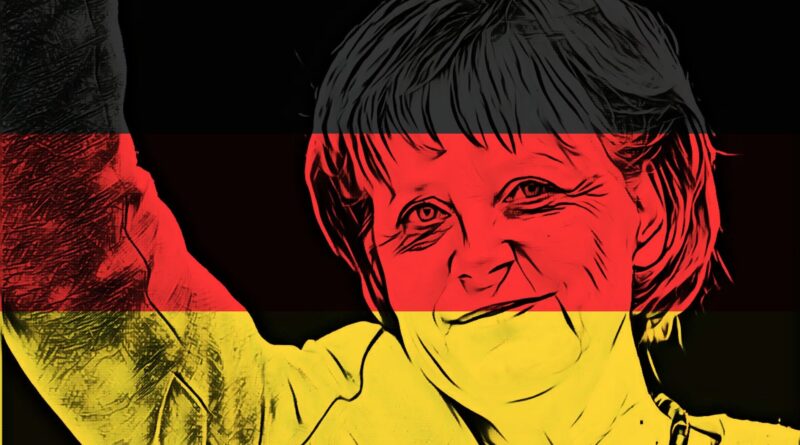After the elections, will Germany lift the ban on dual citizenship?
Germans will go to the polls on September 26th for a historical and highly uncertain election. The country will elect a new parliament and a new Chancellor will succeed Angela Merkel, who has been in power for 16 years and is no longer standing.
As the new government is likely to require the support of three parties, electoral programmes may give an indication of the possible alliances.
One of the key topics in the parties’ manifestos is migration and, related to that, access to German citizenship.
At present people obtaining German citizenship have to renounce their other nationality, unless they are from a country of the European Union or from Switzerland.
British nationals were treated as EU citizens until the end of the post-Brexit transition period, on 31 December 2020, but now will also have to give up their UK passport if they obtain German nationality.
Not surprisingly in this context, the number of Brits granted German citizenship increased from 622 in 2015 to 14,600 in 2019. Then it declined to 9,700 in 2020, the largest drop of all nationalities based on data by the German statistical office Destatis.
“Before Brexit we have given citizenship advice to many British nationals, because a lot of issues emerged for British partners of German citizens and for non-EU nationals married to British citizens,” Carmen Colinas, spokesperson of the Association of Binational Families and Partnerships (Verband binationaler Familien und Partnerschaften), told Europe Street.
One of the people they counselled was Nelly, a British woman living in Germany, married to a Turkish and with a son living in Asia. The association’s lawyers advised the son to seek naturalisation in Germany if eligible, or face visa requirements upon return, as third-country family members of British citizens no longer have the automatic right to reunification in Germany and face stricter visa requirements.
This is a well-known problem in the non-profit group, which has defended people and families with multiple nationalities for 50 years.
21 million people with a migration background
A total of 109,900 individuals naturalised as German citizens last year, whereas the total foreign population of the country is over 11 million (4.9 million are EU citizens). It is estimated that 21 million people in Germany have a migration background.
“It is a matter of justice. People from the EU can already have dual citizenship, while many non-EU citizens stay foreign forever, even if they have been in the country for 20 years and have German partners, for instance if their country of origin does not allow them to rescind their nationality,” Colinas said. “This puts people in a complicated position in terms of loyalties, identity and family. Then there is the issue of the lack of voting rights,” she continued.
Some parties are now suggesting the citizenship law should change.
The Social Democrats (SPD), the Greens and the Liberals (FDP) have included a commitment to allowing dual nationality in their 2021 electoral programmes. The Left party (Die Linke) only promises to offer dual citizenship to children born in Germany of non-German nationals. The conservative Christian Democrats (CDU/CSU) do not mention the issue and have traditionally been against multiple citizenships.
“Depending on the outcome of the elections and the make-up of the next federal government, there seems to be a realistic prospect that German citizenship law may change in the next four years. If the CDU are the largest group in the next government, then change is much less likely” said Matt Bristow of the group British in Germany.
A short summary of what party programmes say about citizenship and EU rights is available below.
Pressure for a new law also in the Netherlands
Political uncertainty also surrounds the ban on dual nationality (with some exceptions) in the Netherlands. The Foundation for the Dutch Abroad has recently placed again a full-page advert in the NRC newspaper calling for a policy change in the incoming government programme.
Elections in the Netherlands took place in March and the parties have since discussed the formation of a new government. PvdA (Dutch Labor), the liberals D66 and the greens GroenLinks included in their programmes the review of dual citizenship rules.
“We now have a center-left bloc of ‘yes’. But that’s still not enough. In other words, we are waiting to see what parties are going to do,” campaign organiser Eelco Keij told Europe Street.
What German parties say
Based on a summary of the programmes by the German Council on Foreign Relations
The Christian Democrats (CDU/CSU) reject the idea of a European unemployment, pension or health insurance system at the EU level, but proposes to simplify the recognition of professional qualifications and improve the portability of occupational pensions to further promote worker mobility. More broadly, the party wants to make Germany more attractive for the “world’s bright minds” and intend to ask embassies and German institutions abroad, such as the Goethe Institutes, to promote the country as a studying and training destination. The party proposes an EU tech visa for highly skilled professionals. As regards the UK, the CDU/CSU propose to expand connections with the UK with a German-British Youth Office and the establishment of a Parliamentary sponsorship programme.
The Social Democrats (SPD) promise a “modern citizenship law” that allows multiple nationalities and shortens the 8-years residence requirement for applicants. At the EU level, the party supports a European unemployment reinsurance scheme, minimum standards in national social security systems, a legal framework for European minimum wages and improved protection for seasonal workers. In addition, there should be binding social standards in all EU trade and investment agreements. European works councils should also be strengthened, the party says.
The Greens also intends to modernize the immigration law arguing that children born in Germany should be granted citizenship if one of their parents has legal habitual residence in the country. The naturalisation process should also be simplified. At the EU level, the Greens have a similar position to the SPD. They propose to establish a European social security number and to enshrine social rights in the European Charter of Fundamental Rights. The party wants to fight undeclared work and bogus self-employment in the EU, and argue that people should receive more information about their rights. In addition, they want to lower the barriers to free movement in the EU for refugees. More broadly, they propose the introduction of a points-based talent card depending on the needs of the job market, to facilitate scholarships and education visas, to ease requirements for permanent residence and to improve the recognition of professional qualifications. Regarding the UK, the Greens want to avoid that European social standards are eroded and to preserve peace in the island of Ireland. The party also wants to continue students and researchers exchanges.
The Liberals (FDP) propose an easier access to German citizenship after 4 years of residence (regardless of the immigration route), a settlement permit after 3 years, and the nationwide naturalisation ceremonies. The party wants to develop local recruitment strategies with selected partner countries and an “opportunity card” for a points-system based on the Canadian model. This should be merged into a European talent pool. Regarding the UK, the FDP wants the full implementation of the withdrawal agreement, especially on peace and citizens’ rights, and an exchange programme with UK modelled on Erasmus+. The party says the door for the UK to rejoin the EU should remain open.
The Left party (Linke) wants children born in Germany from parents who live permanently in the country to have German citizenship. There should also be a right to naturalization after 5 years of residence, while active and passive voting rights should be granted at all levels to people living in Germany for a long time. With regard to EU policies, Die Linke rejects the federal government restriction of social security benefits to migrants from the EU and non-EU countries. All citizens in the EU should have social rights, including a minimum wage, and be well insured. The party suggests climate passports for residents of states that become uninhabitable due to the climate crisis. More broadly, the party says the right to family reunification should apply without restrictions, also for refugees (including the right to reunification of siblings). Qualifications and degrees of non-EU citizens should have better recognition, and residence and work permits should be granted regardless of the length of employment.
The far right party (AfD) does not mention dual citizenship in the programme, but say that the birthplace (jus soli) principle for children of long-term residents should be abolished to return to the descent (jus sanguinis) principle to acquire citizenship. They add that in case of serious crimes up to 10 years after naturalisation, citizenship should be revoked. Regarding the UK, the party rejects “punitive” measures on the part of the EU.
Claudia Delpero © all rights reserved
Europe Street News is an online magazine covering citizens’ rights in the EU and the UK. We are fully independent and we are committed to providing factual, accurate and reliable information. As citizens’ rights are at the core of democracy, our website and newsletter are available for free. Please consider making a contribution so we can continue and expand our coverage. Thank you!




